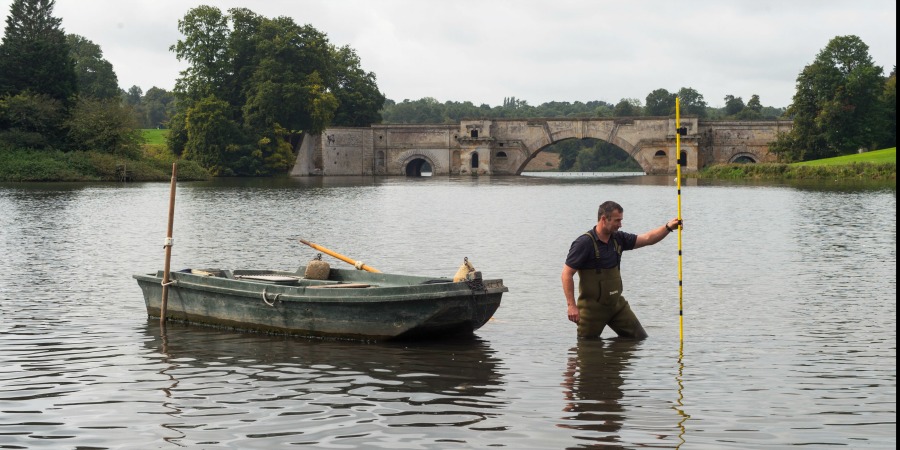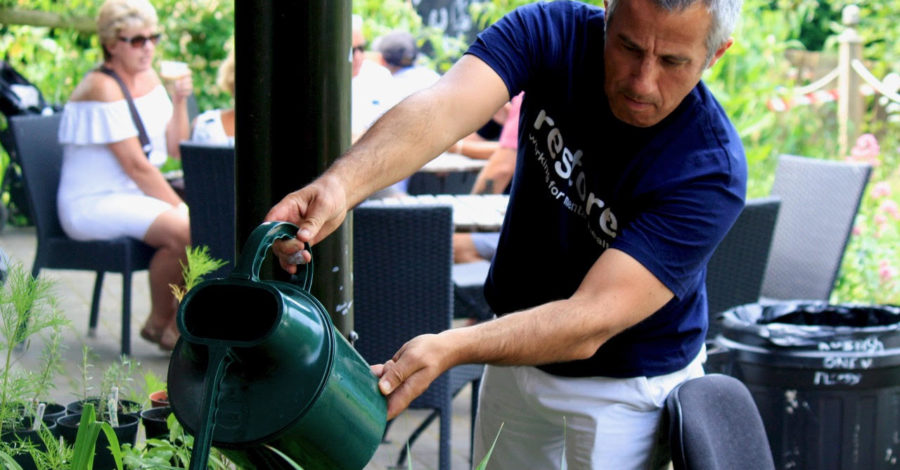[dropcap type =”circle”]B[/dropcap]lenheim Palace is launching its largest restoration project in more than 250 years-a multi-million pound rescue plan to help save ‘the finest view in England’.
The Oxfordshire UNESCO World Heritage Site has unveiled a radical project to help safeguard one of the country’s most idyllic viewpoints as part of a 10-year management plan.
Lord Randolph Churchill, father of Sir Winston, reportedly came up with the phrase in 1874 as he passed through the Woodstock Gate with his new wife and she saw the view over Queen Pool, with the ‘Capability’ Brown parkland, iconic Vanbrugh Bridge and magnificent 18th century Palace beyond for the first time.

She later wrote: ‘As we passed through the entrance archway and the lovely scenery burst upon me, Randolph said with pardonable pride: ‘This is the finest view in England.’
However decades of silt have meant both the Queen Pool and main lake have become so shallow they are at risk of drying out completely. If this were to happen it would also threaten the stability of the Vanbrugh Bridge itself.
“There is an absolute certainty that, if we do not do something radical soon, the view will be lost forever,” said Head of Estates Roy Cox. We have to act now to safeguard this iconic landscape for future generations to discover and enjoy.”
The multi-million pound rescue plan will see a team of diggers dredge 400,000 tonnes of silt from Queen’s Pool and the centrepiece Blenheim Lake.
As well as restoring the lakes to their original 18th century depth and condition the works will also reveal areas of the Vanbrugh Bridge which have been underwater for more than 100 years.
Flooded rooms within the bridge will become temporarily accessible again and many archaeological features – including the original layout of a canal system which pre-dated the bridge – will also be uncovered for the first time in centuries.

“This will be one of the largest civil engineering projects ever undertaken at a stately home and will need to be completed within a relatively short timeframe to prevent permanent damage both to the lakes and the bridge,” said Roy.
“We will be removing enough silt to entirely fill Wembley Stadium and the logistics of the rescue plan are incredibly complex,” he added.
The dredging is part of a far-reaching report outlining Blenheim’s World Heritage Site management plan over the next decade.
Launched to coincide with the 30th anniversary of the Oxfordshire estate’s gaining WHS status from the United Nations Educational, Scientific and Cultural Organization (UNESCO), the plan includes a series of goals and commitments.
The document lays out a clear vision for the sustainable future of the WHS at Blenheim Palace and incorporates key aspects of the management, maintenance and running of the Estate.
The report also looks at improving the overall visitor experience, increasing links to public transport and safeguarding the future of High Park; one of the most important ancient oak woodlands in the world.

























